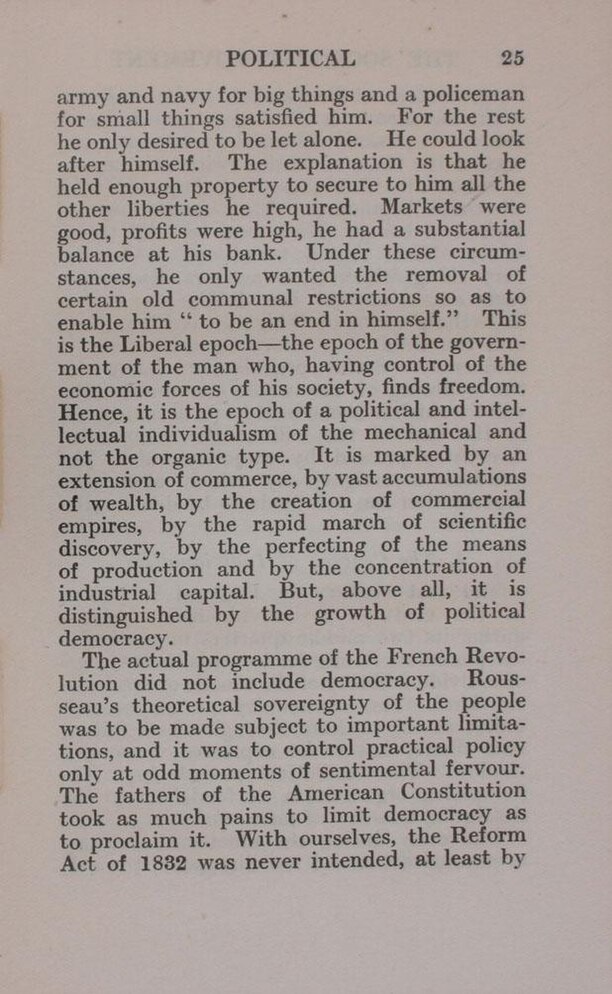army and navy for big things and a policeman for small things satisfied him. For the rest he only desired to be let alone. He could look after himself. The explanation is that he held enough property to secure to him all the other liberties he required. Markets were good, profits were high, he had a substantial balance at his bank. Under these circumstances, he only wanted the removal of certain old communal restrictions so as to enable him "to be an end in himself." This is the Liberal epoch—the epoch of the government of the man who, having control of the economic forces of his society, finds freedom. Hence, it is the epoch of a political and intellectual individualism of the mechanical and not the organic type. It is marked by an extension of commerce, by vast accumulations of wealth, by the creation of commercial empires, by the rapid march of scientific discovery, by the perfecting of the means of production and by the concentration of industrial capital. But, above all, it is distinguished by the growth of political democracy.
The actual programme of the French Revolution did not include democracy. Rousseau's theoretical sovereignty of the people was to be made subject to important limitations, and it was to control practical policy only at odd moments of sentimental fervour. The fathers of the American Constitution took as much pains to limit democracy as to proclaim it. With ourselves, the Reform Act of 1832 was never intended, at least by
